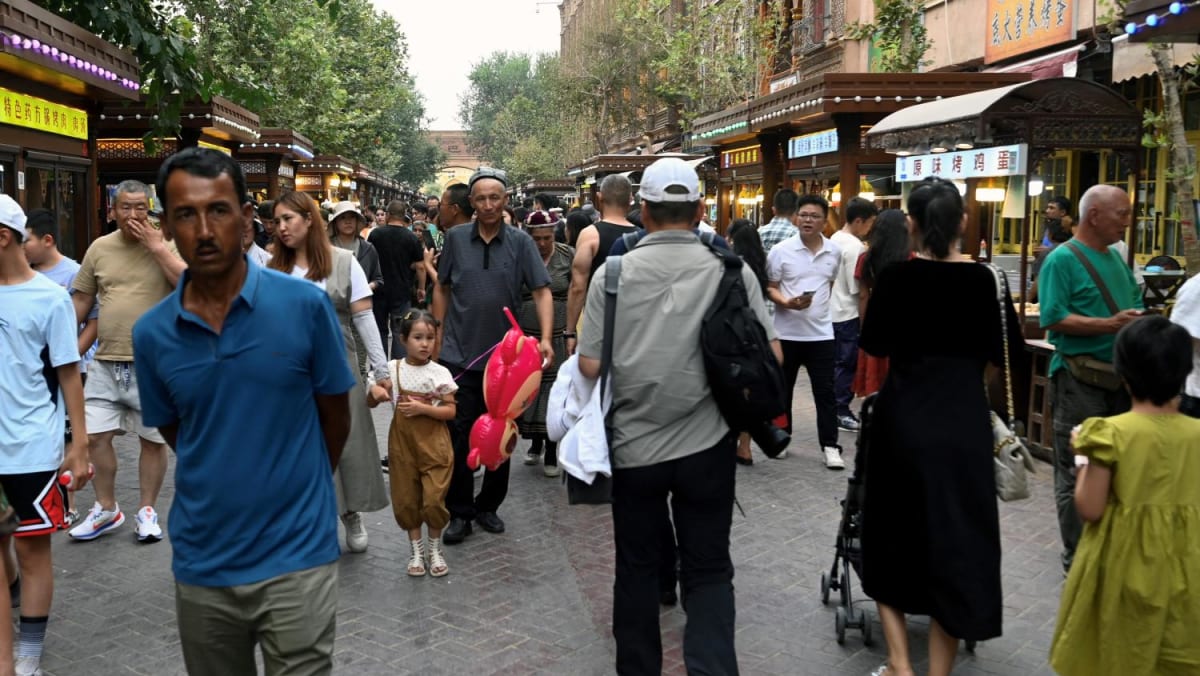
KASHGAR (China) — Chinese travellers throng the bazaars of old Kashgar, munching mutton kebabs and soaking up heavily commodified Uyghur culture — part of a government push to remould troubled Xinjiang into a tourism paradise.
Kashgar, an ancient Silk Road oasis, was more recently on the frontlines of Beijing’s sweeping anti-terrorism campaign in the northwestern region.
The city’s outskirts are still pockmarked with facilities that the ruling Communist Party once called vocational schools but Western researchers describe as extralegal detention camps for Muslims — with the United States (US) linking them to policies of “genocide”.
Now, after years of assault on Uyghur traditions and ways of life, the government is pumping cash into repackaging a state-approved version of their culture to attract domestic and foreign travellers.
On a recent visit by AFP journalists to old Kashgar, thousands of tourists crowded streetside stalls that were selling silk scarves and steaming naan.
Looking beyond the tourist activities, there were other signs pointing to a loss of traditions and lifestyles for Uyghur residents.
An expanse of rubble lay at the site of Kashgar’s former Grand Bazaar just beyond the fringes of the old town.
The vast market, where thousands of traders once hawked fabrics, spices and other wares, was reportedly razed by authorities last year.
Much of the old town had also been demolished and rebuilt over recent decades as part of the government’s development drive.
TOURISM BOOM
Chinese officials have long viewed tourism as a way to develop resource-rich but historically impoverished Xinjiang.
The strategy has gained new impetus this year as the economy staggers out of a hardline zero-Covid policy that gummed up domestic travel and throttled consumption.
Last month, President Xi Jinping called on officials to “strengthen positive publicity and show Xinjiang’s new atmosphere of openness and self-confidence”.
“Do people look oppressed? Does the city look like an open-air prison like the US said?” wrote one state-linked journalist in July on Twitter — the platform rebranded as X, which is blocked in China — alongside clips of herself dining and dancing with Kashgar locals.
China has dismissed a United Nations report detailing “serious” abuses that may constitute “crimes against humanity”, and blasted US claims of a “genocide”.
Its foreign ministry told AFP that in Xinjiang “people’s lives are continuously improving, cultural spaces are prospering and religion is harmonious and agreeable”.
The development push has coincided with a relaxation of security in cities where Uyghur residents were once subjected to pervasive body scans and other inspections by armed police.
In Kashgar, AFP saw just a handful of officers, and abandoned or barely used scanners dotted the streets.
PRAYERS PROHIBITED
But off the main tourist trail, in the mostly Uyghur town of Yengisar, AFP reporters saw a sign in a cemetery prohibiting Islamic “religious activities” such as kneeling, prostrating, praying with palms facing upwards and reciting scripture.
The same sign permitted certain offerings for the Qingming Festival, typically observed by Han but not Uyghurs.
Around a dozen mosques in other towns and villages around Kashgar were found locked and rundown.